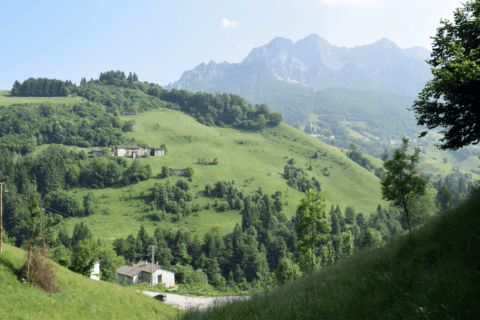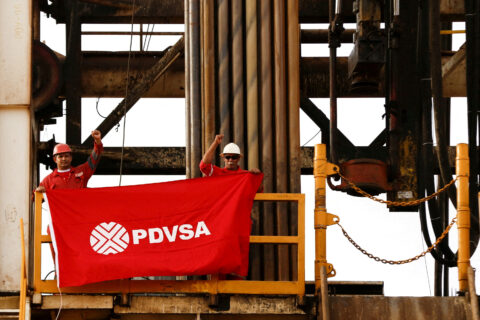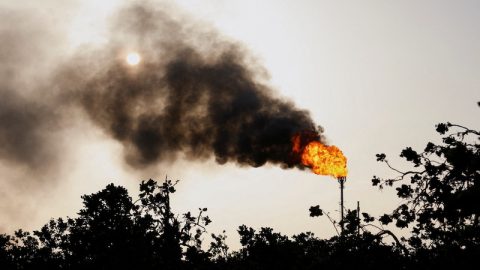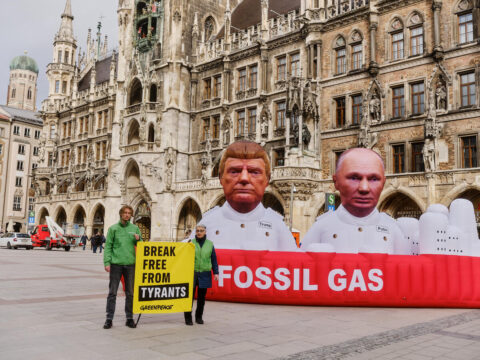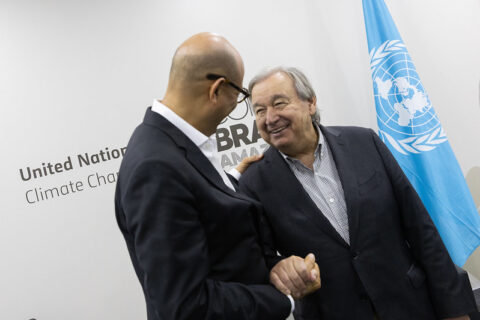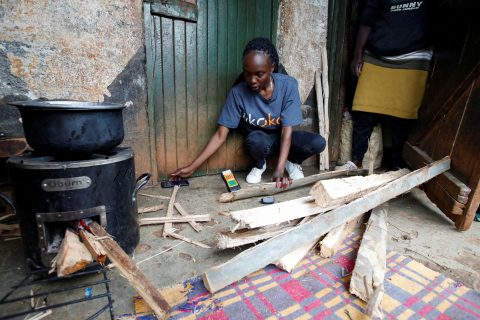OPENING SUMMARY:
Upon the completion of writing my own climate story, I found a sudden interest in learning more about my father’s story. In an era where the effects of climate change are becoming increasingly evident, taking a step back to hear the experiences of others and reflect on the past becomes crucial. Made possible through my Talk Climate internship with Climate Generation, I was able to ask Ramil Villarama, whom I like to call “Dad,” a set of questions to understand his early years that were spent on a family farm. He shared his unique perspectives on how the environment he knew as a child has evolved, the lessons he learned from the land, and his thoughts on the urgent issue of climate change that affects us all today. As we delved into these cherished memories and insightful anecdotes, we uncovered not only the joys and challenges of growing up on a farm but also the stark contrasts between then and now in the context of climate change. Thank you for tuning in and enjoy the interview segment!
The below interview has been edited and condensed for clarity. To hear the full interview, click on the recording at the bottom of this post.

INTERVIEW:
Ramier: Hello Dad!
Dad: Hey, how are you son?
Ramier: Good! This set of questions is the section about your farm childhood, then we’ll move on to one more focused on climate change, then one more focused on the future and future goals.
Dad: That sounds good, I like that!


Farm childhood
Ramier: Can you share your experiences of growing up on a family farm?
Dad: I’m really happy that you are having interests as far as my childhood… growing up on a farm, it’s really a rewarding experience. I used to help my dad plant various vegetables like eggplants, tomatoes, corn, bitter gourd or we call it ampalaya in Tagalog, and of course, rice. Apart from these vegetables, we would plant and grow melons and watermelons as well. I grew up and lived on the farm for almost 22 years. In terms of the farming practices, we relied on rains apart from irrigation in making sure everything got enough water. Given the nature of the plants that we grow and the type of the soil/land, we grew them alternately, which means some plants are best grown during wet or rainy season while others are in dry season. I also helped my dad raise cattles and carabaos… we would gather cow manure to be used as fertilizers as it actually helps improve the quality of the soil which is essential to growing healthy vegetables, plants, and fruits.
Ramier: How did you learn life in a different way by living on a farm?
Dad: Living on a farm actually taught me to appreciate the simple things. It taught me the value of working hard, and to be humble, respectful, patient, and how to persevere. I really admired and respected my parents, particularly my dad, as he worked really hard to provide our daily needs, all coming from the farm. Helping my parents, particularly my dad, with the planting and nourishing of what we grew taught me responsibility and compassion at a young age.
Ramier: I borrowed this next question from a book that also talked about someone’s experiences growing up on a family farm. How did you have to work with and not against nature to make sure the farm succeeded?
Dad: We would rely heavily on nature to make sure that the farm or the farming succeeds right. Rain is very vital and a significant source of water for healthy soil and to grow the plants. Occasionally we would rely on heavy rains because that’s really good for the plants. In the same manner, equally important was the heat of the sun, given that once you do the harvest, you need to dry the crops, especially rice, before it goes to milling. So nature plays an important role for the farm. We should take care of nature, our nature.
Ramier: That’s very interesting. In the book that I read, the author talked about all four seasons because he was from California, so it’s interesting to compare that to the Philippines where it is only a lot of heat and rain, not really a spring or winter season is very interesting.
Dad: That’s very true! In the Philippines, sometimes I would joke around because in terms of the weather or the temperature, it’s like hot or hotter, but during rainy season obviously there’s like rains and a lot of rains…you know, which as you can imagine, excessive rains don’t really help, cause it causes flooding.
Ramier: Can you explain more of the specific challenges you and your family faced due to the changing weather conditions?
Dad: An example would be when there’s drought and less rain, farmers or my dad would be heavily dependent on irrigation systems, which becomes costly because you would have to buy fuel or gas to power the pumps… so obviously that’s an extra expense, which affects the profitability of farming. Then, the quality of soil diminishes, which means you can’t really expect as good of a harvest.

Climate Change
Ramier: Cool! Let’s talk more specifically about climate change. How has climate change impacted your family farm over the years, and what are some specific changes you have observed? How has the climate in the Philippines changed, if so, since your childhood?
Dad: Climate change definitely impacted our family farm over the years. It actually became harder for certain crops to grow due to shifts in weather patterns and we would look into growing different plants to cope. The climate in the Philippines became, I would say, unpredictable. Nowadays, I’ve seen it get worse because of industrialization, pollution, and people not being cognisant right… they don’t really, I would say for a lack of a better word, take care of nature.
Future
Ramier: Looking ahead, what do you envision for the future of farming, not only on your farm, but your region, considering the ongoing challenges of climate change? What role does the Philippine government play in supporting climate-resilient farming practices… are there any policy gaps that need to be addressed?
Dad: This is really a profound question. Farmers should have access to better farm irrigation systems. Farmers should be able to explore and plant different rice seed variants or rice varieties to help breed improved crops with higher resilience to climate change. In the absence of good rice variants, you can’t really expect a good harvest. The second question you asked about the Philippine government… obviously the government should play a vital role in supporting climate-resilient farming practices by building better irrigation systems. The Philippine government should also continue to educate its people regarding climate change as it truly impacts farming in the Philippines. As for the policy gaps that need to be addressed, the government should really enhance leadership and accountability through monitoring, evaluation, and review of climate change policies and activities. As you would know, the Philippines is like a major source of the global rice supply. There are a lot of farmers there, and it’s really important that the government do its part in making sure that farmers are able to navigate this ever-changing climate.
Ramier: Considering the challenges posed by climate change, do you have any advice or message for the younger generation growing up on family farms today?
Dad: I do, I sincerely do. As you know climate change poses a real threat to farmers around the world. Farming is highly dependent on good weather as it can really influence the harvest. In this regard, my pieces of advice that I’d give the younger generation are that they need to learn how to adapt and think outside of the box. Also, be more cognizant and assertive in understanding what truly causes climate change. The younger generations growing up on family farms need to be more informed. Climate change has been an ongoing issue and younger generations should be more keen in understanding the effects.

Ramier: What I got out of that was education is a big part, and as you mentioned, the government can play a big part in educating people, especially people who may not have the resources to learn about climate change. So to end this, I recently wrote my climate story and in it I wrote that I want to learn more about my identities, and one of them is my Filipino identity. I wanted to specifically learn your stories about growing up on the farm and that connection to climate change. So, my last question is, what were some stories your father told you about the farm when you were younger?
Dad: I actually gravitate to this particular question. I really liked listening to my dad, and he always told me a lot of stories about our farm when I was younger. One story I will never forget is, he said I’d always tell him, hey can we pick up some tomatoes or watermelons. Dad would tell me, “Hey, you and I will go to our farm and he’d bring me to the actual field for me to see the size of the tomatoes and watermelons that we grow.” That’s how he told me the story because obviously I was a little young back then so I couldn’t really recall what happened. My dad told me that he’d say we’ll pick the ripe ones and we will eat them and share them with the entire family and friends. He would always remind me that in life you need to persevere in order to be successful regardless of whether I become a farmer or follow any other profession. He also reminded me to respect nature and everyone around me because again, nature is vital to farmers. And, while it was a lowkey life, I could always feel happiness or fully content because there’s food on the table. My dad was always able to provide food for us. I kind of get teary when we’re talking about the farm, my experiences, and the stories that my dad told. He’s been very passionate in regard to farming and he’s very responsible. Imagine, my parents’ main source of income back then was farming. They didn’t get higher education, but they were able to provide for their family and my dad was able to think outside of the box as well. He didn’t just rely on planting vegetables, he also took care of cattle. Even now we have cattle. It’s a cycle: you plant rice and then the hay, the hay then becomes food for the cattle. You can imagine, it’s like a homestead, everything’s there. Weather played a really important role in that, so again, we should respect nature and take care of Mother Earth.
Ramier: One more thing, why do you think it’s important for you to share your own story and, like what we’re doing right now, talk about your life on the farm and be appreciative of that part of your life? Why do you think it’s important for me and my other siblings to visit the farm and experience the farm whenever we travel to the Philippines?
Dad: You actually hit the nail on the head when you say the word appreciate. Me sharing these stories with you all, for me, is very important to know your roots. There’s life out there, right. I mean you probably think it’s simple. In essence, it’s kind of lowkey, but very rewarding for you all to experience. Meaning living is simple in the Philippines and everything is provided by nature. When we have the opportunity to visit the farm, I like you all to kind of experience what I experienced because I do cherish that upbringing. For me, I would not be the person I am today without the experiences that taught me to be a better person. Living on a farm, I mean it was great. I encourage you, when we have the opportunity, to see and understand your roots as well.
Ramier: Wow, thank you dad!
Dad: I hope that answers all of your questions, but if you would like to have another conversation regarding me growing up on a farm, feel free to ask. I obviously love talking about my childhood living on a farm.
Ramier: Thank you!
Dad: You’re very welcome, anak!
Both my father and I witnessed the power of storytelling through our conversation about his childhood farm adventures and climate change. We invite you to listen to the full, uncut interview below—a treasure trove of insights that will incite your own passion for storytelling.

Ramier Villarama (he/him) was born in the Philippines, but moved to New Jersey with his family at a young age. He is a current rising third-year student at Macalester College in St. Paul, MN. In addition to being a part of the Men’s Swimming and Diving team, he is a double major in Environmental Studies and Studio Art, with a minor in Asian Studies and a concentration in Food, Agriculture, and Society. He has been recently learning more about his Filipino culture and his relationship with nature, and has been connecting both with his art and the work that he creates.
The post Buhay Bukid: A Conversation with My Father on His Childhood Farm Adventures and Climate Change appeared first on Climate Generation.
Buhay Bukid: A Conversation with My Father on His Childhood Farm Adventures and Climate Change
Climate Change
World leaders invited to see Pacific climate destruction before COP31
The leaders and climate ministers of governments around the world will be invited to meetings on the Pacific islands of Fiji, Palau and Tuvalu in the months leading up to the COP31 climate summit in November.
Under a deal struck between Pacific nations, Fiji will host the official annual pre-COP meeting, at which climate ministers and negotiators discuss contentious issues with the COP Presidency to help make the climate summit smoother.
This pre-COP, expected to be held in early October, will include a “special leaders’ component” hosted in neighbouring Tuvalu – 2.5-hour flight north – according to a statement issued by the Australian COP31 President of Negotiations Chris Bowen on LinkedIn on Thursday.
Bowen said this “will bring a global focus to the most pressing challenges facing our region and support investment in solutions which are fit for purpose for our region.” Australia will provide operational and logistical support for the event, he said.
Like many Pacific island nations, Tuvalu, which is home to around 10,000 people, is threatened by rising sea levels, as salt water and waves damage homes, water supplies, farms and infrastructure.
Dozens of heads of state and government usually attend COP summits, but only a handful take part in pre-COP meetings. COP31 will be held in the Turkish city of Antalya in November, after an unusual compromise deal struck between Australia and Türkiye.
In addition, Pacific country Palau will host a climate event as part of the annual Pacific Islands Forum (PIF) – which convenes 18 Pacific nations – in August.
Palau’s President Surangel Whipps Jr told the Australian Broadcasting Corporation (ABC) that this meeting would be a “launching board” to build momentum for COP31 and would draw new commitments from other countries to help Pacific nations cut emissions and adapt to climate change.
“At the PIF our priorities are going to be 100 per cent renewables, the ocean-climate nexus and … accelerating investments that build resilience from climate change,” he told ABC.
The post World leaders invited to see Pacific climate destruction before COP31 appeared first on Climate Home News.
World leaders invited to see Pacific climate destruction before COP31
Climate Change
There is hope for Venezuela’s future – and it isn’t based on oil
Alejandro Álvarez Iragorry is a Venezuelan ecologist and coordinator of Clima 21, an environmental NGO. Cat Rainsford is a transition minerals investigator for Global Witness and former Venezuela analyst for a Latin American think tank.
In 1975, former Venezuelan oil minister Juan Pablo Pérez Alfonzo gave a now infamous warning.
“Oil will bring us ruin,” he declared. “It is the devil’s excrement. We are drowning in the devil’s excrement.”
At the time, his words seemed excessively gloomy to many Venezuelans. The country was in a period of rapid modernisation, fuelled by its booming oil economy. Caracas was a thriving cultural hotspot. Everything seemed good. But history proved Pérez right.
Over the following decades, Venezuela’s oil dependence came to seem like a curse. After the 1980s oil price crash, political turmoil paved the way for the election of populist Hugo Chávez, who built a socialist state on oil money, only for falling prices and corruption to drive it into ruin.
By 2025, poverty and growing repression under Chávez’s successor Nicolás Maduro had forced nearly 8 million Venezuelans to leave the country.
Venezuela is now at a crossroads. Since the US abducted Maduro on January 3 and seized control of the country’s oil revenues in a nakedly imperial act, all attention has been on getting the country’s dilapidated oil infrastructure pumping again.
But Venezuelans deserve more than plunder and fighting over a planet-wrecking resource that has fostered chronic instability and dispossession. Right now, 80% of Venezuelans live below the poverty line. Venezuelans are desperate for jobs, income and change.
Real change, though, won’t come through more oil dependency or profiteering by foreign elites. Instead, it is renewable energy that offers a pathway forward, towards sovereignty, stability and peace.
Guri Dam and Venezuela’s hydropower decline
Venezuela boasts some of the strongest potential for renewable energy generation in the region. Two-thirds of the country’s own electricity comes from hydropower, mostly from the massive Guri Dam in the southern state of Bolívar. This is one of the largest dams in Latin America with a capacity of over 10 gigawatts, even providing power to parts of Colombia and Brazil.
Guri has become another symbol of Venezuela’s mismanagement. Lack of diversification caused over-reliance on Guri for domestic power, making the system vulnerable to droughts. Poor maintenance reduced Guri’s capacity and planned supporting projects such as the Tocoma Dam were bled dry by corruption. The country was left plagued by blackouts and increasingly turned to dirty thermoelectric plants and petrol generators for power.
Today, industry analysis suggests that Venezuela is producing at about 30% of its hydropower capacity. Rehabilitating this neglected infrastructure could re-establish clean power as the backbone of domestic industry, while the country’s abundant river system offers numerous opportunities for smaller, sustainable hydro projects that promote rural electrification.
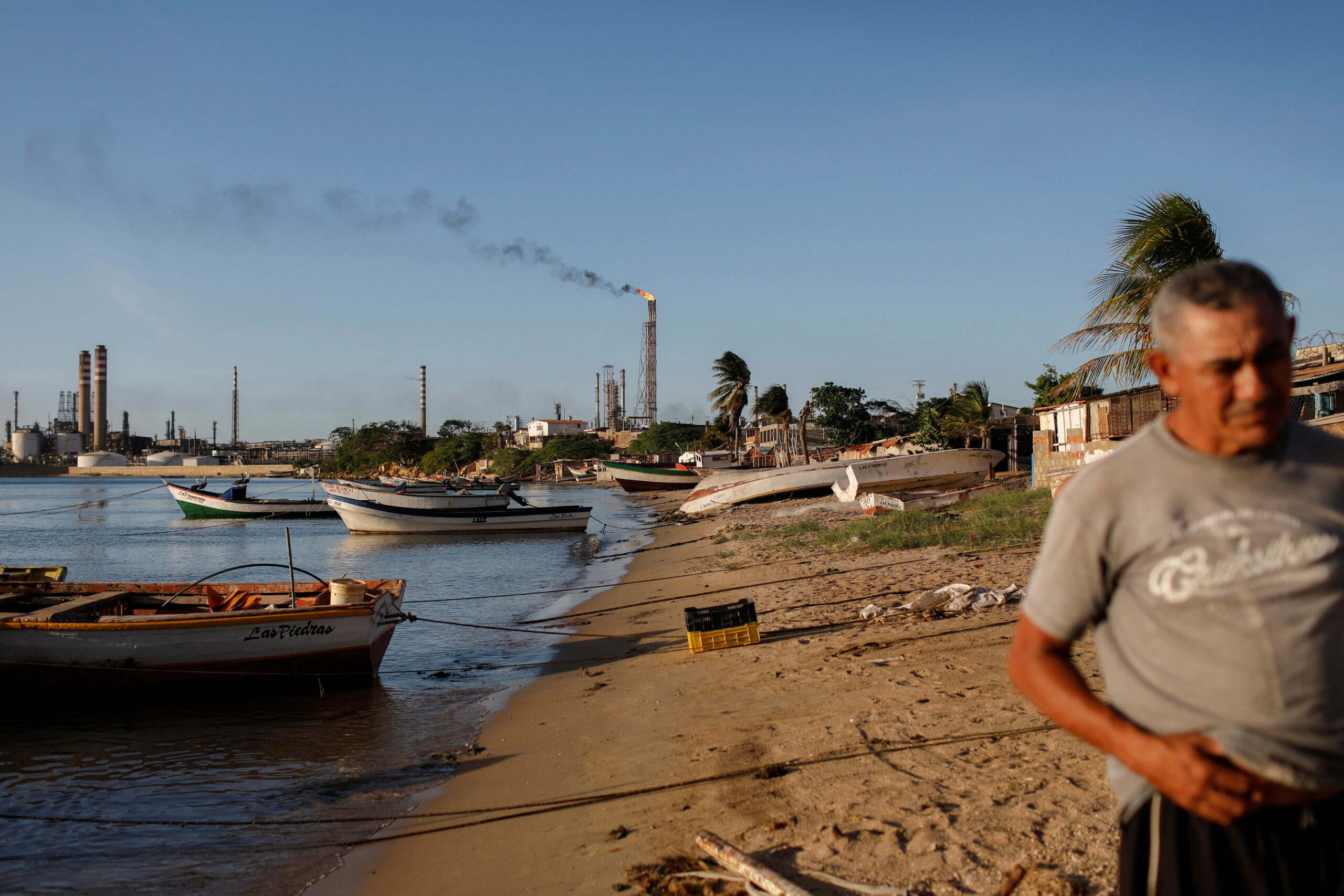

Venezuela also has huge, untapped promise in wind power that could provide vital diversification from hydropower. The coastal states of Zulia and Falcón boast wind speeds in the ideal range for electricity generation, with potential to add up to 12 gigawatts to the grid. Yet planned projects in both states have stalled, leaving abandoned turbines rusting in fields and millions of dollars unaccounted for.
Solar power is more neglected. One announced solar plant on the island of Los Roques remains non-functional a decade later, and a Chávez-era programme to supply solar panels to rural households ground to a halt when oil prices fell. Yet nearly a fifth of the country receives levels of solar radiation that rival leading regions such as northern Chile.
Developing Venezuela’s renewables potential would be a massive undertaking. Investment would be needed, local concerns around a just and equitable transition would have to be navigated and infrastructure development carefully managed.
Rebuilding Venezuela with a climate-driven energy transition
A shift in political vision would be needed to ensure that Venezuela’s renewable energy was not used to simply free up more oil for export, as in the past, but to power a diversified domestic economy free from oil-driven cycles of boom and bust.
Ultimately, these decisions must be taken by democratically elected leaders. But to date, no timeline for elections has been set, and Venezuela’s future hangs in the balance. Supporting the country to make this shift is in all of our interests.
What’s clear is that Venezuela’s energy future should not lie in oil. Fossil fuel majors have not leapt to commit the estimated $100 billion needed to revitalise the sector, with ExxonMobil declaring Venezuela “uninvestable”. The issues are not only political. Venezuela’s heavy, sour crude is expensive to refine, making it dubious whether many projects would reach break-even margins.
Behind it all looms the spectre of climate change. The world must urgently move away from fossil fuels. Beyond environmental concerns, it’s simply good economics.
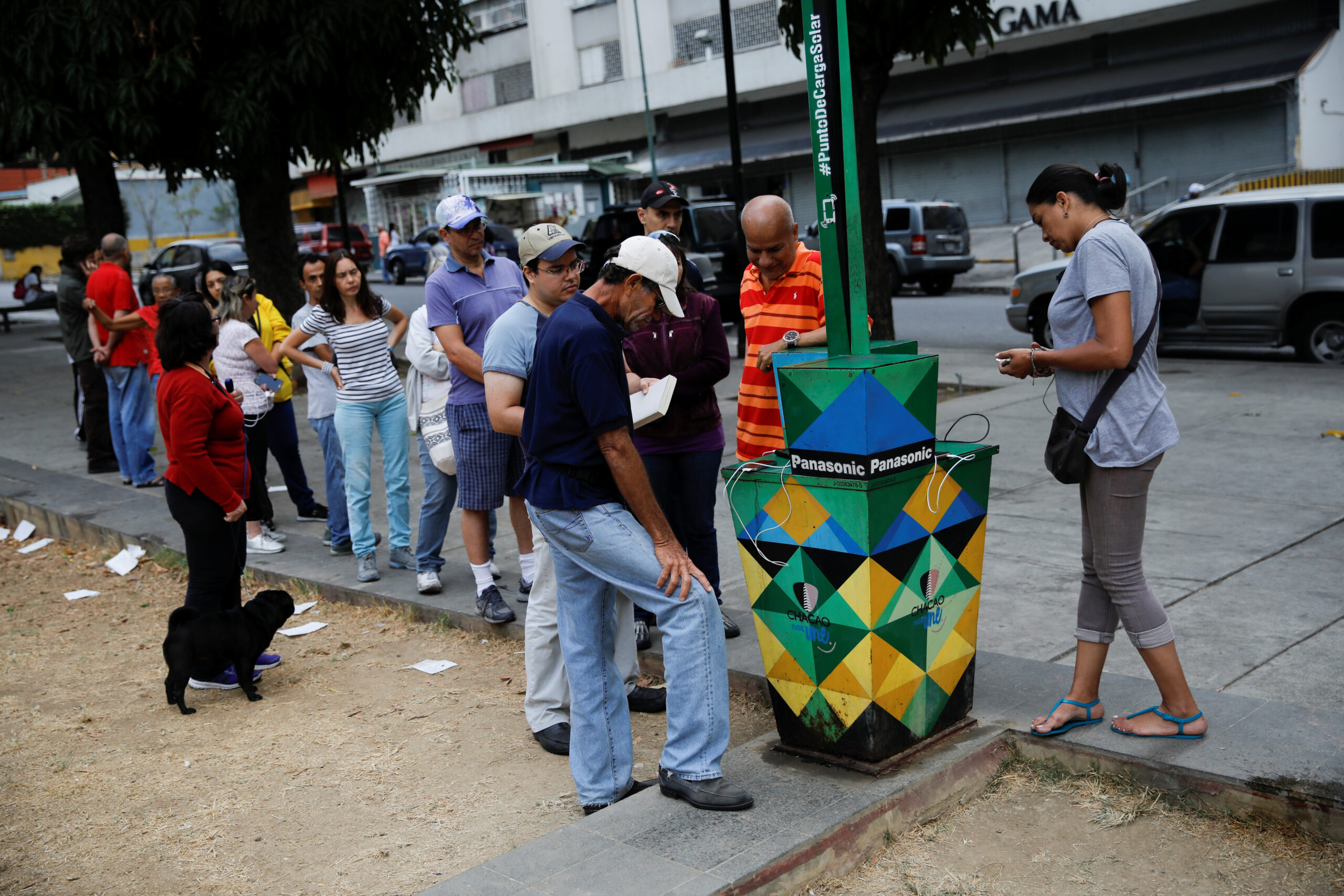

Recent analysis by the International Renewable Energy Agency finds that 91% of new renewable energy projects are now cheaper than their fossil fuel alternatives. China, the world’s leading oil buyer, is among the most rapid adopters.
Tethering Venezuela’s future to an outdated commodity leaves the country in a lose-lose situation. Either oil demand drops and Venezuela is left with nothing. Or climate change runs rampant, devastating vulnerable communities with coastal loss, flooding, fires and heatwaves. Meanwhile, Venezuela remains locked in the same destructive economic swings that once led to dictatorship and mass emigration. There is another way.
Venezuelans rightfully demand a political transition, with their own chosen leaders. But to ensure this transition is lasting and stable, Venezuela needs more – it needs an energy transition.
The post There is hope for Venezuela’s future – and it isn’t based on oil appeared first on Climate Home News.
There is hope for Venezuela’s future – and it isn’t based on oil
Climate Change
UN’s new carbon market delivers first credits through Myanmar cookstove project
A cleaner cooking initiative in Myanmar is set to generate the first-ever batch of carbon credits under the new UN carbon market, more than a decade after the mechanism was first envisioned in the Paris Agreement.
The Article 6.4 Supervisory Body has approved the issuance of 60,000 credits, which correspond to tonnes of carbon dioxide equivalent reduced by distributing more efficient cookstoves that need less firewood and, therefore, ease pressure on carbon-storing forests, the project developers say. The approval of the credit issuance will become effective after a 28‑day appeal and grievance period.
The programme started in 2019 under the previous UN-run carbon offsetting scheme – the Clean Development Mechanism (CDM) – and is being implemented by a South Korean NGO with investment from private South Korean firms.
The credits are expected to be used primarily by major South Korean polluters to meet obligations under the country’s emissions trading system – a move that will also enable the government to count those units toward emissions reduction targets in its nationally determined contribution (NDC), the UN climate body told Climate Home News.
Myanmar will use the remaining credits to achieve in part the goals of its national climate plan.
Making ‘a big difference’
The approval of the credits issuance represents a major milestone for the UN carbon market established under article 6.4 of the Paris Agreement. By generating carbon credits that both governments and private firms can use, the mechanism aims to accelerate global climate action and channel additional finance to developing nations.
UNFCCC chief Simon Stiell said the approval of the first credits from a clean cooking project shows “how this mechanism can support solutions that make a big difference in people’s daily lives, as well as channeling finance to where it delivers real-life benefits on the ground”.
“Over two billion people globally are without access to clean cooking, which kills millions every year. Clean cooking protects health, saves forests, cuts emissions and helps empower women and girls, who are typically hardest hit by household air pollution,” he added in a statement.
Concerns over clean cookstove credits
Carbon markets are seen as an important channel to raise money to help low-income communities in developing countries switch to less polluting cooking methods. Proceeds from the sale of carbon credits made up 35% of the revenue generated by for-profit clean cooking companies in 2023, according to a report by the Clean Cooking Initiative.
But many cookstove offsetting projects have faced significant criticism from researchers and campaigners who argue that climate benefits are often exaggerated and weak monitoring can undermine claims of real emission reductions. Their main criticism is that the rules allow project developers to overestimate the impact of fuel collection on deforestation, while relying on surveys to track stove usage that are prone to bias and can further inflate reported impacts.
As Louisiana bets big on ‘blue ammonia’, communities brace for air pollution
The project in Myanmar follows a contested methodology developed under the Kyoto Protocol that was rejected last year by The Integrity Council for the Voluntary Carbon Market (ICVCM), a watchdog that issues quality labels to carbon credit types, because it is “insufficiently rigorous”.
An analysis conducted last year by Brussels-based NGO Carbon Market Watch claimed that the project would generate 26 times more credits than it should, when comparing its calculations with values from peer-reviewed scientific literature.
‘Conservative’ values cut credit volume
But, after transitioning from the CDM to the new mechanism, the project applied updated values and “more conservative” assumptions to calculate emission reductions, according to the UNFCCC, which added that this resulted in 40% fewer credits being issued than would have been the case in the CDM.
“The result is consistent with environmental integrity requirements and ensures that each credited tonne genuinely represents a tonne reduced and contributes to the goals of the Paris Agreement,” said Mkhuthazi Steleki, the South African chair of article 6.4 Supervisory Body, which oversees the mechanism.
Over 1,500 projects originally developed under the CDM requested the transition to the new mechanism, including controversial schemes subsidising fossil gas-powered plants in China and India. But, so far, the transfer of only 165 of all those projects has been approved by their respective host nations, which have until the end of June to make a final decision.
The UN climate body said this means that “a wide variety of real-world climate projects are already in line to follow” in sectors such as renewable energy, waste management and agriculture. But the transfer of old programmes from the CDM has long been contested with critics arguing that weak and discredited rules allow projects to overestimate emission reductions.
Genuinely new projects unrelated to the CDM are expected to start operating under the Paris Agreement mechanism once the Supervisory Body approves the first custom-made methodologies.
The post UN’s new carbon market delivers first credits through Myanmar cookstove project appeared first on Climate Home News.
UN’s new carbon market delivers first credits through Myanmar cookstove project
-
Greenhouse Gases7 months ago
Guest post: Why China is still building new coal – and when it might stop
-
Climate Change7 months ago
Guest post: Why China is still building new coal – and when it might stop
-

 Greenhouse Gases2 years ago
Greenhouse Gases2 years ago嘉宾来稿:满足中国增长的用电需求 光伏加储能“比新建煤电更实惠”
-
Climate Change2 years ago
Bill Discounting Climate Change in Florida’s Energy Policy Awaits DeSantis’ Approval
-
Climate Change2 years ago
Spanish-language misinformation on renewable energy spreads online, report shows
-

 Climate Change2 years ago
Climate Change2 years ago嘉宾来稿:满足中国增长的用电需求 光伏加储能“比新建煤电更实惠”
-
Climate Change Videos2 years ago
The toxic gas flares fuelling Nigeria’s climate change – BBC News
-

 Carbon Footprint2 years ago
Carbon Footprint2 years agoUS SEC’s Climate Disclosure Rules Spur Renewed Interest in Carbon Credits


